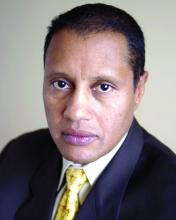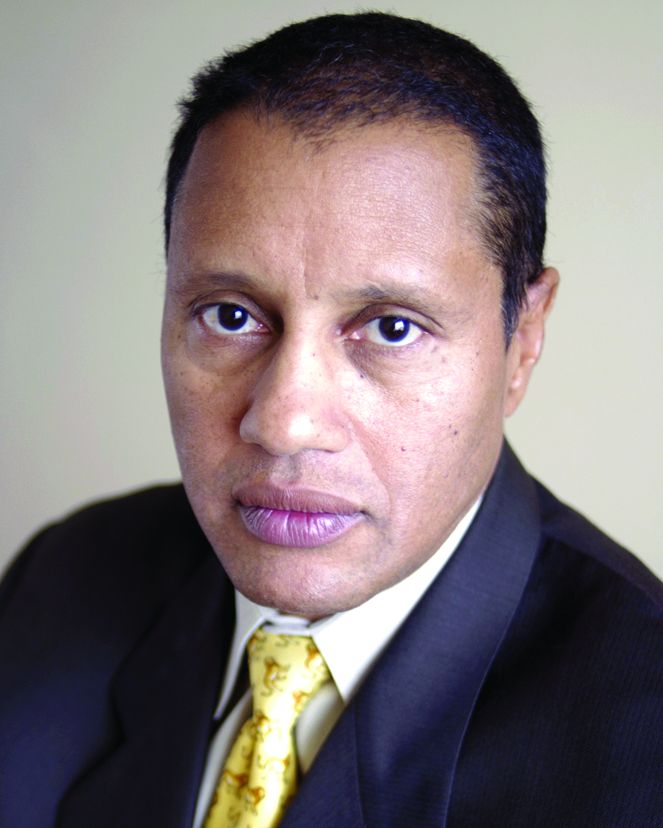User login
As psychiatrists, we must be more precise with our language. When we speak, we must not use psychiatric diagnoses to describe common, everyday problems in life.
For example, at the recent American Psychiatric Association meeting in New York City, I frequently heard my colleagues talking about being “traumatized” over a microinsult or a microaggression. Although these individuals suggested that they were so fragile and vulnerable that stressful events caused them to develop posttraumatic stress disorder (PTSD), I seriously doubted it. Moreover, with further dialogue, it became clear that they were stressed or distressed over the stressful event – not traumatized in the purest sense of the term.
Traumatic stress, on the other hand, is an event that is so painful and disruptive that it runs the risk of breaking the mind’s ability to process or make peace with the event because it is so overwhelming that it disrupts or destroys normal psychic life. Such an event has the potential of causing PTSD, which is a chronic anxiety disorder that needs to be addressed clinically. This precision may seem nitpicky; however, the research on traumatic stress is clear. If you expose 100 people to a genuine traumatic experience, about 10% of the males and 20% of the females will develop PTSD, thus, something must be protecting people from developing PTSD from exposure to trauma. The research also is lucid that catastrophizing increases the risk of developing PTSD from exposure to a trauma by about 33%, and not having a sense of self-efficacy increases the risk by an additional 33%. Accordingly, , as this is catastrophizing and minimizes the belief in self-efficacy.
Similarly, we must be careful how we use the word “depression.” My understanding is depression is a clinical phenomenon that can be disabling. Unfortunately, I often hear patients and others talking about how they are depressed over various events in life that to me are a part of living, for example, being out of a job and not being able to make a way in life. Of course, if you are out actively looking for a job, that is probably not a clinical depression that would respond to antidepressant medication, but which would respond to finding a job. If a person were depressed from not having a job and unable to summon the energy to look for a job for 2 weeks or longer, I possibly would consider them clinically depressed. It seems laypeople are always using the word “depression” interchangeably for “unhappy,” “sad,” “grief,” or even “demoralization,” and although they all have common threads and are interlinked to one another, they are also very different.
Finally, the use of the word “bipolar” seems to be creeping into common usage, as I frequently hear patients who have poor affect regulation, for example, bad tempers, referring to themselves as being “bipolar.” However, after more dialogue, it becomes clear that they are describing a loss of self-control that lasts for maybe for 30 minutes or an hour. What is more distressing are the number of psychiatrists who are willing to take the patients’ word for it that they are “bipolar” and willing to prescribe mood stabilizers for such patients.
We must do better. We must not mislead the public into thinking that the ordinary problems of living are psychiatric disorders.
Dr. Bell is staff psychiatrist at Jackson Park Hospital Surgical-Medical/Psychiatric Inpatient Unit; clinical professor emeritus, department of psychiatry, University of Illinois at Chicago; and former director of the Institute for Juvenile Research (the birthplace of child psychiatry), all in Chicago. He also serves as chair of psychiatry at Windsor University, St. Kitts.
As psychiatrists, we must be more precise with our language. When we speak, we must not use psychiatric diagnoses to describe common, everyday problems in life.
For example, at the recent American Psychiatric Association meeting in New York City, I frequently heard my colleagues talking about being “traumatized” over a microinsult or a microaggression. Although these individuals suggested that they were so fragile and vulnerable that stressful events caused them to develop posttraumatic stress disorder (PTSD), I seriously doubted it. Moreover, with further dialogue, it became clear that they were stressed or distressed over the stressful event – not traumatized in the purest sense of the term.
Traumatic stress, on the other hand, is an event that is so painful and disruptive that it runs the risk of breaking the mind’s ability to process or make peace with the event because it is so overwhelming that it disrupts or destroys normal psychic life. Such an event has the potential of causing PTSD, which is a chronic anxiety disorder that needs to be addressed clinically. This precision may seem nitpicky; however, the research on traumatic stress is clear. If you expose 100 people to a genuine traumatic experience, about 10% of the males and 20% of the females will develop PTSD, thus, something must be protecting people from developing PTSD from exposure to trauma. The research also is lucid that catastrophizing increases the risk of developing PTSD from exposure to a trauma by about 33%, and not having a sense of self-efficacy increases the risk by an additional 33%. Accordingly, , as this is catastrophizing and minimizes the belief in self-efficacy.
Similarly, we must be careful how we use the word “depression.” My understanding is depression is a clinical phenomenon that can be disabling. Unfortunately, I often hear patients and others talking about how they are depressed over various events in life that to me are a part of living, for example, being out of a job and not being able to make a way in life. Of course, if you are out actively looking for a job, that is probably not a clinical depression that would respond to antidepressant medication, but which would respond to finding a job. If a person were depressed from not having a job and unable to summon the energy to look for a job for 2 weeks or longer, I possibly would consider them clinically depressed. It seems laypeople are always using the word “depression” interchangeably for “unhappy,” “sad,” “grief,” or even “demoralization,” and although they all have common threads and are interlinked to one another, they are also very different.
Finally, the use of the word “bipolar” seems to be creeping into common usage, as I frequently hear patients who have poor affect regulation, for example, bad tempers, referring to themselves as being “bipolar.” However, after more dialogue, it becomes clear that they are describing a loss of self-control that lasts for maybe for 30 minutes or an hour. What is more distressing are the number of psychiatrists who are willing to take the patients’ word for it that they are “bipolar” and willing to prescribe mood stabilizers for such patients.
We must do better. We must not mislead the public into thinking that the ordinary problems of living are psychiatric disorders.
Dr. Bell is staff psychiatrist at Jackson Park Hospital Surgical-Medical/Psychiatric Inpatient Unit; clinical professor emeritus, department of psychiatry, University of Illinois at Chicago; and former director of the Institute for Juvenile Research (the birthplace of child psychiatry), all in Chicago. He also serves as chair of psychiatry at Windsor University, St. Kitts.
As psychiatrists, we must be more precise with our language. When we speak, we must not use psychiatric diagnoses to describe common, everyday problems in life.
For example, at the recent American Psychiatric Association meeting in New York City, I frequently heard my colleagues talking about being “traumatized” over a microinsult or a microaggression. Although these individuals suggested that they were so fragile and vulnerable that stressful events caused them to develop posttraumatic stress disorder (PTSD), I seriously doubted it. Moreover, with further dialogue, it became clear that they were stressed or distressed over the stressful event – not traumatized in the purest sense of the term.
Traumatic stress, on the other hand, is an event that is so painful and disruptive that it runs the risk of breaking the mind’s ability to process or make peace with the event because it is so overwhelming that it disrupts or destroys normal psychic life. Such an event has the potential of causing PTSD, which is a chronic anxiety disorder that needs to be addressed clinically. This precision may seem nitpicky; however, the research on traumatic stress is clear. If you expose 100 people to a genuine traumatic experience, about 10% of the males and 20% of the females will develop PTSD, thus, something must be protecting people from developing PTSD from exposure to trauma. The research also is lucid that catastrophizing increases the risk of developing PTSD from exposure to a trauma by about 33%, and not having a sense of self-efficacy increases the risk by an additional 33%. Accordingly, , as this is catastrophizing and minimizes the belief in self-efficacy.
Similarly, we must be careful how we use the word “depression.” My understanding is depression is a clinical phenomenon that can be disabling. Unfortunately, I often hear patients and others talking about how they are depressed over various events in life that to me are a part of living, for example, being out of a job and not being able to make a way in life. Of course, if you are out actively looking for a job, that is probably not a clinical depression that would respond to antidepressant medication, but which would respond to finding a job. If a person were depressed from not having a job and unable to summon the energy to look for a job for 2 weeks or longer, I possibly would consider them clinically depressed. It seems laypeople are always using the word “depression” interchangeably for “unhappy,” “sad,” “grief,” or even “demoralization,” and although they all have common threads and are interlinked to one another, they are also very different.
Finally, the use of the word “bipolar” seems to be creeping into common usage, as I frequently hear patients who have poor affect regulation, for example, bad tempers, referring to themselves as being “bipolar.” However, after more dialogue, it becomes clear that they are describing a loss of self-control that lasts for maybe for 30 minutes or an hour. What is more distressing are the number of psychiatrists who are willing to take the patients’ word for it that they are “bipolar” and willing to prescribe mood stabilizers for such patients.
We must do better. We must not mislead the public into thinking that the ordinary problems of living are psychiatric disorders.
Dr. Bell is staff psychiatrist at Jackson Park Hospital Surgical-Medical/Psychiatric Inpatient Unit; clinical professor emeritus, department of psychiatry, University of Illinois at Chicago; and former director of the Institute for Juvenile Research (the birthplace of child psychiatry), all in Chicago. He also serves as chair of psychiatry at Windsor University, St. Kitts.

